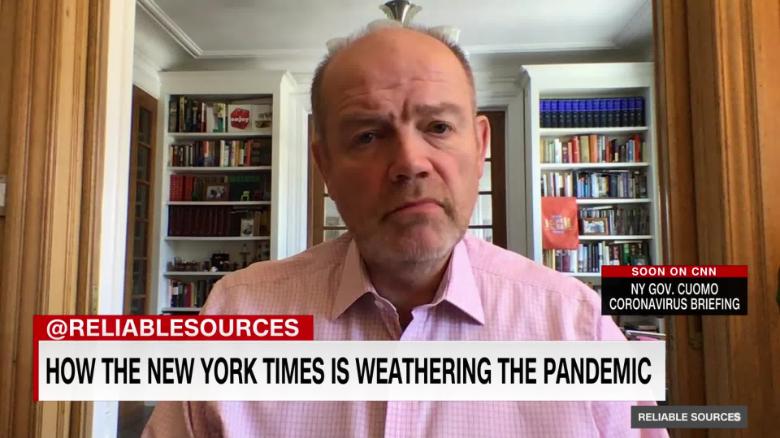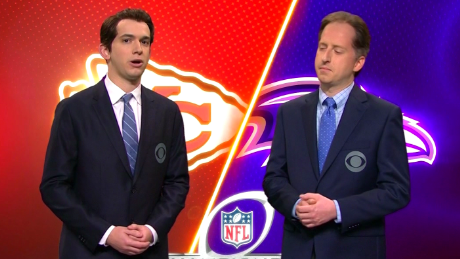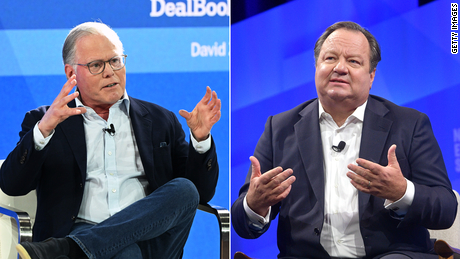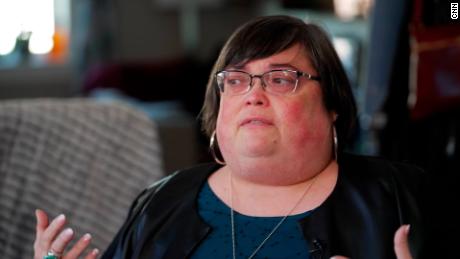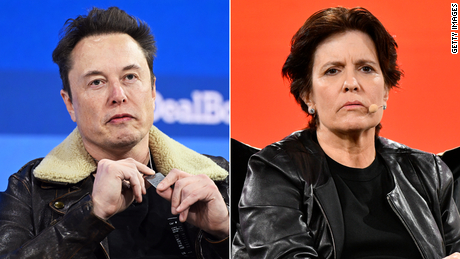New York (CNN Business)The Atlantic, one of the oldest magazines in the United States, is laying off 17% of its employees. Atlantic Media chairman and owner David Bradley announced the cuts on Thursday and blamed the global pandemic for decimating its ad revenue and in-person events business.
The layoffs, which amount to 68 staffers, run across departments including events, sales and editorial. The editorial department had 22 layoffs, half due to the company closing its video department. Bradley also said executives would take pay cuts and there would be a general pay freeze for the remainder of the year.
The 163-year-old publication has been behind some of the most-read stories about coronavirus and has amassed 90,000 new subscribers since March at the start of the pandemic in the United States, according to Thursday's memo. But it could not escape the pandemic's effects on the media business, which has laid off and furloughed thousands of employees and cut pay for those who are still employed.
"I had thought that I would spend some substantial part of this memo explaining the reasoning behind our decision. But, I think it may speak for itself," Bradley wrote in the memo, obtained by CNN Business. "The particular timing is clear -â a global pandemic that has shuttered the economy generally, advertising acutely, and in-person events altogether."
"Surely, we would have paused over furloughs instead of severance if we believed the positions were coming back," he added.
Billionaire Laurene Powell Jobs, founder of philanthropic organization Emerson Collective, bought a majority stake in The Atlantic in 2017. Other billionaire-backed media organizations likewise have had to grapple with the effects of the pandemic on their bottom line.
The unionized newsroom at the Los Angeles Times, which is owned by doctor and biotech entrepreneur Patrick Soon-Shiong, agreed to pay cuts for hundreds of staffers earlier this month. Time magazine owner Marc Benioff, the founder of Salesforce, pledged in March that there would be no layoffs for three months.
Emerson Collective did not immediately respond to a request for comment. But news of the layoffs prompted some head-scratching among journalists who wondered why a philanthropist who Forbes estimates to be worth $19 billion cannot save jobs.
Less than a year after Jobs' acquired majority ownership, The Atlantic announced a 12- to 18-month expansion plan that included the addition of 100 staffers. The company had been profitable for the previous eight years.
The Atlantic's coverage during the pandemic has received record readership for the company. The Atlantic science writer Ed Yong told CNN Business in April that his editorial mandate was to "swing big and take your time." His story, "How The Pandemic Will End," became one of the most read stories on the site.
In March, Bradley touted The Atlantic's record traffic â 87 million unique visitors â and massive growth in subscriptions â 36,000 new subscribers. Since The Atlantic put up a paywall in September, it has acquired 160,000 subscribers, according to Thursday's memo. Bradley said in the memo that the company plans to rely more on revenue directly from readership rather than advertisers, similar to The New York Times and The Washington Post.
But while readership and subscriptions have soared, The Atlantic's in-person events businesses collapsed when the pandemic prompted shelter-at-home orders. That division, called AtlanticLIVE, produces multi-day events such as the annual The Atlantic Festival, which features panels with leaders in politics, business and entertainment, and one-day forums. It moved some of these events to the Internet, as other media companies did.
"In one week in March, maybe two, the ground fell out from under live eventsâlive anythingâworldwide. Of necessity, our events work went virtual," Bradley wrote in Thursday's memo. "It turns out, there is substantial room for original creation in a zoom-led frame on life; to begin, we are able to bring our writers into conversation with our readers -- at a scale no hotel ballroom can match."
He added in Thursday's memo that The Atlantic's strategy going forward is "speed" with the objective of reaching one million subscribers by December 2022. Bradley said the goal is, "Highly ambitious. Even bracing. This is the sound of shifting gears in our consumer strategy."
